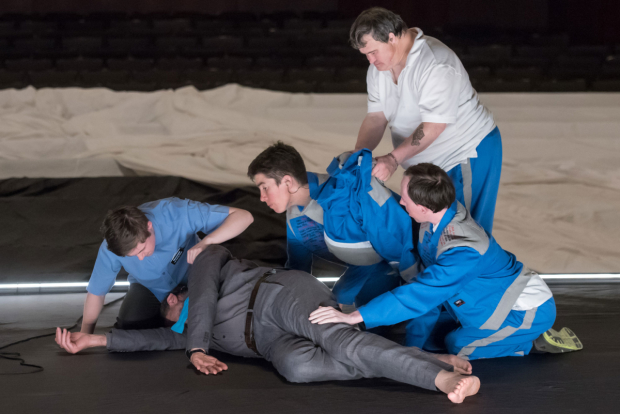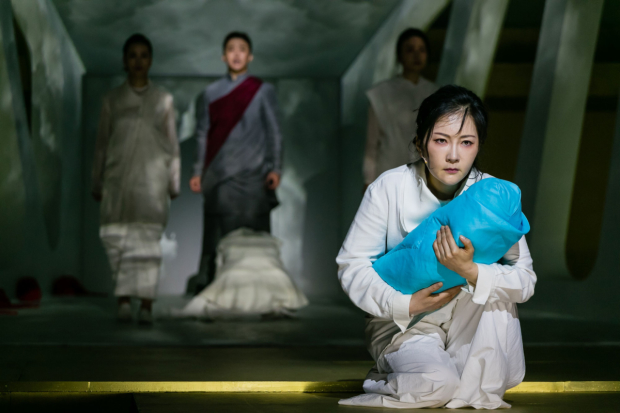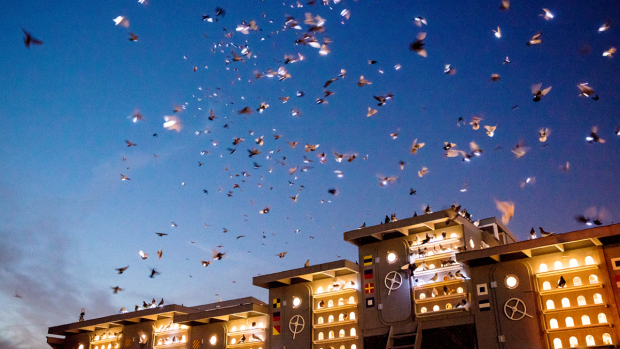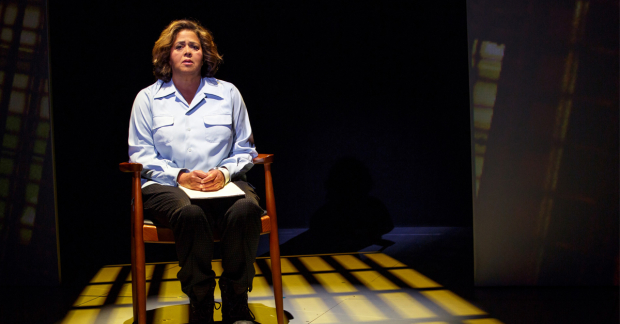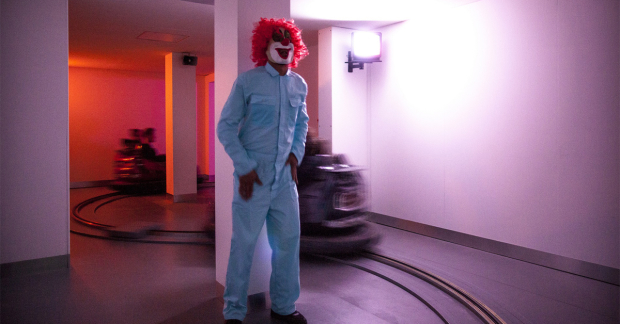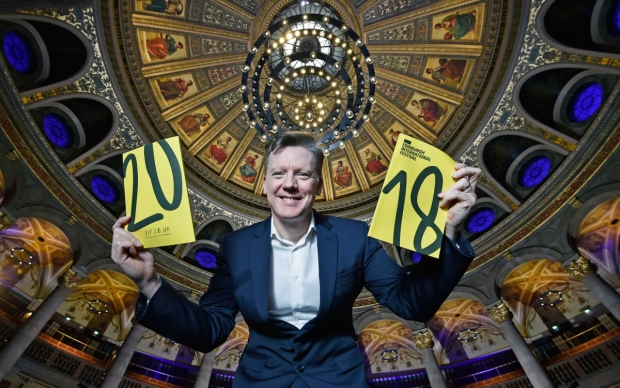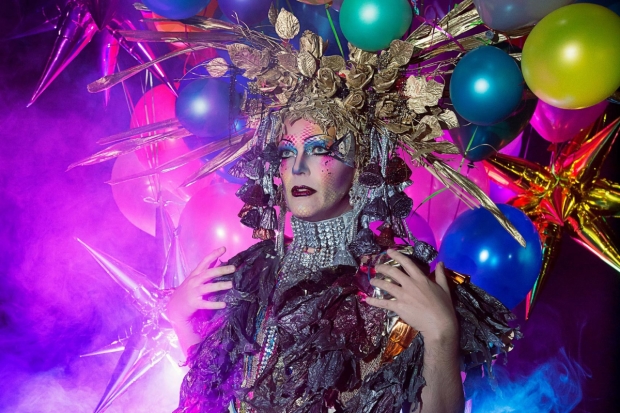Review: Notes from the Field (Royal Court)
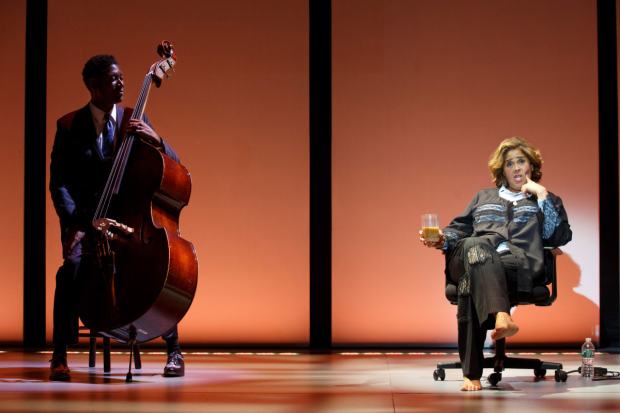
© Joan Marcus
Notes From the Field is conceived, written and performed by Anna Deavere Smith, playwright and West Wing and Nurse Jackie actress. Yet anything further from an ego trip is hard to imagine.
Instead, she puts herself on the stage and doesn't just play some of the 250 people she has interviewed in the course of her research, but becomes them – impersonating their speech, their movement, their delivery in an extraordinary feat of verbatim theatre.
It is something she has done before in Fires in the Mirror, about the 1991 Crown Heights riots and Twilight: Los Angeles which dealt with the issues arising from the 1992 riots that tore the city apart. Notes From the Field, which is playing at the Royal Court as part of this year's LIFT, is even more ambitious, seeking to examine the "school to prison pipeline" that afflicts and affects the black population of the United States. But it is powered by the same fury, by a clear-eyed view of a system that is constructed to keep people in their place, and by the violence used to enforce that injustice.
The testimonies she has gathered are chilling in the directness of their impact: the boy in Stockton, California who tells its mayor that he regards it as a life ambition to be alive at the age of 25; the Native American who is sucked into a life of crime by constant barring from school; the story of Freddie Gray, who died at the age of 25 from a spine that was severed during his arrest because he dared to look a police officer in the eye; the girl thrown to a floor by a white police officer because she talked back in class.
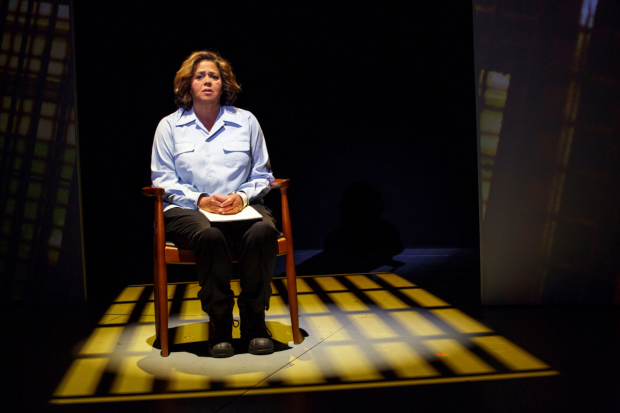
© Joan Marcus
In Leonard Foglia's sensitive, imaginative direction, these are framed by a mixture of effects: the videos of actual incidents streaming across the brick back wall, the sudden, shuddering impact of the brutal acts in shocking close-up; chairs and tables brought on for Smith to use as props; a double bass player (Marcus Shelby) arriving, to accompany the monologues with his own music, and to provide a sympathetic chorus to what he hears.
The piece moves through many moods, bound together by its theme. Its first half, broadly, is outrage – a description of the terrible state of things, with a highlight in the words of Jamal Harrison Bryant, preacher at Gray's funeral, who quivers with righteous anger at the young man's death. The second half examines the trauma caused by the way poverty and prison are used as new forms of enslavement, the nihilism engendered, the cruelty promoted. "Why do we want to hurt broken people?" asks Smith in the guise of Stephanie Williams, an emotional support teacher, who has witnessed the effects on children of violence and lack of love.
It's a question that resonates loudly in Trump's America, in days when migrant children are being separated by force from their parents. It's a question that sounds in Britain too, where investment in education that will protect and promote the poorest children is being cut in the name of austerity. That relevance makes the conclusion, when Congressman John Lewis, veteran of the civil rights movement, recalls a moment of forgiveness and grace – and encourages the audience to sing "Amazing Grace" – seem oddly muted.
There are other problems with the form. The difficulty of verbatim theatre is that you never know quite where an interview will take you and one that dwells on the horrific treatment of a baby by a sex offender seems an odd discursion into a different kind of evil.
What holds it all together the power of the research, and Smith's performance. She doesn't vanish into the characters; she is always present behind their voices. But that makes the effect all the more telling. By changing her shoes, slipping on a jacket, extending her vowels, slumping in a chair, she conjures the people she has listened to so carefully. By telling us their stories, she makes us share the plight of those abused and violated by a system that should protect them.



